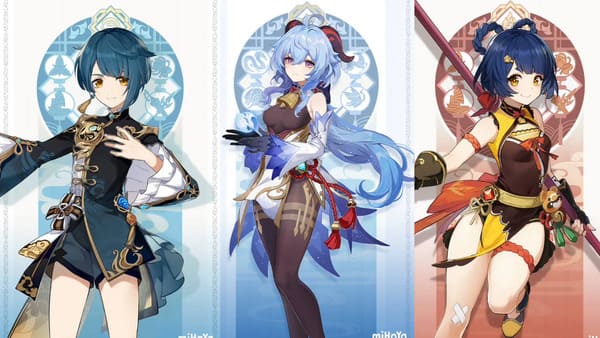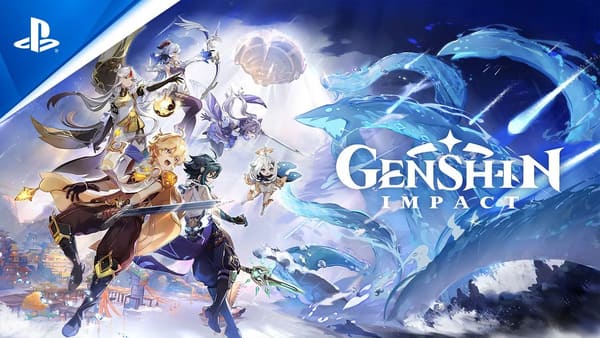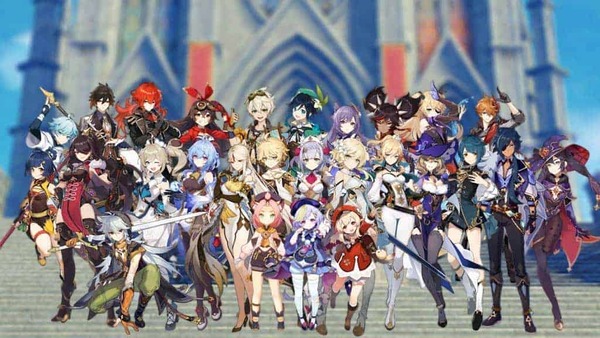
Genshin Impact
All trademarks belong to their respective owners.
Advertisement
Popular Now
Introduction
Since its release in September 2020, Genshin Impact has quickly risen to become one of the most popular free-to-play action role-playing games (ARPGs) worldwide. Developed by miHoYo, the game blends elements of open-world exploration, puzzle-solving, combat, and a deep narrative, all wrapped in a stunning anime-inspired visual style. However, while Genshin Impact has garnered widespread acclaim for its gameplay and world-building, one of its most controversial features is its gacha system. This randomized loot box mechanic, which allows players to obtain new characters and weapons, has been the subject of much debate, especially due to its monetization strategy and its impact on player behavior. In this article, we will delve deep into the issues surrounding the gacha system in Genshin Impact, its effects on both the game’s economy and the player experience, and the long-term implications of its design. We will explore the mechanics of the system, its impact on progression and player psychology, as well as the ethical concerns surrounding it.
1. Understanding the Gacha System in Genshin Impact
The gacha system in Genshin Impact is a central mechanic of the game’s monetization and progression system. Players use an in-game currency to "wish" for new characters or weapons, which are drawn randomly from a pool. While this provides an element of excitement and anticipation, it also introduces the potential for significant frustration, especially when rare and highly sought-after characters or weapons are not obtained after numerous attempts.1.1 The Mechanics of the Gacha System
The system works by allowing players to spend two types of in-game currency: Primogems, which are earned through gameplay, and Fate, which can be purchased with real money or earned in limited quantities. Players use these currencies to make "wishes," which can grant them various rewards, including characters, weapons, and artifacts. Each wish has a probability associated with it, and the odds of getting higher-tier rewards (such as 5-star characters and weapons) are relatively low. In addition to the standard banner (the pool of available rewards), Genshin Impact also periodically introduces limited-time banners that feature specific 5-star characters or weapons. These banners offer an increased drop rate for the featured items, but the randomness still means that players can spend large sums of money or an enormous amount of time farming for currency without ever receiving the desired item.1.2 Pity System: A Double-Edged Sword
 To mitigate the frustration of bad luck, Genshin Impact employs a "pity" system, which guarantees that after a certain number of unsuccessful pulls, a 5-star character or weapon will drop. This system aims to give players a sense of hope, but it doesn’t necessarily guarantee that players will get the character they want, only that they will receive a 5-star item. This mechanic, while offering some relief, still reinforces the reliance on random chance, leaving players feeling that their success in obtaining new content is ultimately out of their hands.
To mitigate the frustration of bad luck, Genshin Impact employs a "pity" system, which guarantees that after a certain number of unsuccessful pulls, a 5-star character or weapon will drop. This system aims to give players a sense of hope, but it doesn’t necessarily guarantee that players will get the character they want, only that they will receive a 5-star item. This mechanic, while offering some relief, still reinforces the reliance on random chance, leaving players feeling that their success in obtaining new content is ultimately out of their hands.
2. The Psychological Impact of Gacha Mechanics
One of the most insidious aspects of the gacha system is its ability to manipulate player psychology. The combination of low odds, periodic promotions, and the allure of powerful characters creates a perfect storm for gambling-like behavior, leading many players to spend money in the hopes of obtaining their desired rewards.2.1 The Illusion of Control and “Gotcha” Moments
The core principle of the gacha system relies on intermittent rewards, which are known to trigger psychological responses. Players are given small, frequent rewards (like lower-tier items) to maintain engagement, but the real payoff comes from the rare, infrequent drops that provide significant upgrades or new characters. This randomization mimics the structure of gambling, and players often experience a "gotcha" moment when they finally receive the highly desired item. The psychology behind this is akin to slot machines or lottery tickets. The hope of obtaining something rare encourages players to keep spending in search of that reward. This phenomenon is known as "variable ratio reinforcement," which is highly addictive. The unpredictability of rewards keeps players hooked, even when the odds of success are stacked against them.2.2 Spending Beyond Reason: The Problem of Whale Spending
For many players, the allure of new characters or powerful weapons becomes too strong to resist. This leads to a phenomenon known as "whale spending," where players invest large sums of money into the game in an attempt to acquire all the rare content. Some players may spend hundreds or even thousands of dollars on the gacha system, often without receiving their desired rewards. While this type of spending is crucial to Genshin Impact's business model, it raises significant ethical concerns. For one, it can lead to financial strain for players who become obsessed with collecting every character. Additionally, the game’s marketing strategies—such as timed banners and limited-time offers—exacerbate this behavior by creating a sense of urgency.3. The Impact on Player Progression and Game Balance
 While the gacha system can be fun in moderation, it also has profound implications for player progression and the overall balance of the game. Players who are able to spend large amounts of money on the game have an advantage in terms of obtaining powerful characters and weapons, which can create a sense of imbalance in both the competitive and cooperative aspects of Genshin Impact.
While the gacha system can be fun in moderation, it also has profound implications for player progression and the overall balance of the game. Players who are able to spend large amounts of money on the game have an advantage in terms of obtaining powerful characters and weapons, which can create a sense of imbalance in both the competitive and cooperative aspects of Genshin Impact.

















